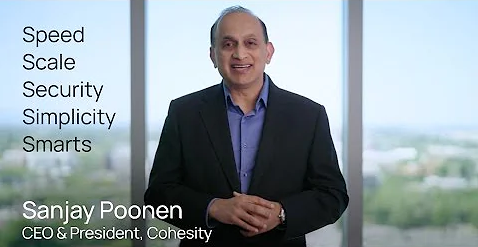Cognitive AI, also called cognitive artificial intelligence, is software that tries to think and learn by imitating the way human brains work. It uses natural language processing (NLP) and machine learning (ML) to attempt to learn, reason, and understand the human intention behind queries to deliver more relevant responses.
Cognitive AI is different from retrieval augmented generation or RAG AI, in that RAG combines the strengths of both generative AI and retrieval AI, and is different from generative AI, which produces more accurate and context-aware results from users’ prompts.
What is cognitive computing, and how does it work?
While there seem to be differences in how cognitive computing is defined, most sources agree that it is a combination of computer science and cognitive science—a subset of artificial intelligence (AI) that attempts to mimic the way the human brain works.
Definitions of cognitive computing range and include these:
- Technologies that are based on the scientific principles behind artificial intelligence and signal processing, encompassing machine self-learning, human-computer interaction, natural language processing, data mining, and more (Technopiaopens in a new tab).
- Systems that learn at scale, reason with purpose, and interact with humans naturally (IBMopens in a new tab).
Cognitive computing systems can synthesize data from diverse information sources to respond to queries. These systems take conflicting evidence and context into account when providing answers to help humans make more informed decisions.
Cognitive computing vs cognitive AI
The line between cognitive computing and cognitive AI is often blurred, and the terms are sometimes used interchangeably. Both fall into a broad category of machines designed to replicate human thought. Both use a wide array of AI technologies: natural language processing (NLP), machine learning (ML), deep learning, data mining, pattern recognition, and others. But, differences between the two technologies can be found in their end goals.
- Cognitive computing tends to be found in systems designed to improve human decision-making. Its objective is to forge a partnership between humans and machines to empower humans to make smarter and faster decisions.
- Cognitive AI, however, not only mimics human thought but can also act autonomously. Its objective is to analyze information, learn from it, make decisions, and perform tasks independently—with little to no human involvement.
While cognitive AI can make its own decisions, cognitive computing helps people make more informed decisions.
What is the difference between AI and cognitive AI?
AI, short for artificial intelligence, is an umbrella term that refers to systems with intelligence usually attributed to humans. This includes systems that work to solve problems, communicate using natural language, recognize patterns, and learn from experience or acquire additional information. The long-standing objective of AI is to design systems capable of doing tasks or completing processes that would otherwise need human intelligence.
Cognitive AI is a subcategory of AI. These systems possess human-like intelligence and can emulate the way a human brain works. They’re designed to understand, learn, and interact in human-like ways. While cognitive AI systems use AI, not all AI systems use cognitive AI.
How is cognitive AI being used today?
The use cases for cognitive AI are rapidly evolving. Here are some examples of how cognitive AI is used today:
- Powering self-driving cars (automotive industry) — Cognitive AI is foundational for autonomous cars. Such vehicles use AI to perceive their environment, make decisions, and navigate—all without human intervention. They process data from sensors in human-centric ways to understand what’s happening in the street, including other vehicles, pedestrians, and traffic signs. With cognitive AI, the potential exists to change driving experiences radically.
- Automating trading (financial services) — Cognitive AI automates trading systems in the finance industry. These systems independently analyze market trends, make predictions, and execute trades without human intervention. Because cognitive AI can react faster to market changes than humans can, it has the potential to execute better and more profitable trades.
- Creating content — Cognitive AI is also used to autonomously generate written materials, such as articles, advertisements, product collateral pages, and other digital and paper assets. Media organizations are now using cognitive AI to write news stories based on live data, such as the results of sporting events or financial reports. Cognitive AI has tremendous potential to streamline and accelerate content creation, which can serve to minimize costs and maximize profits.
- Controlling smart homes — In modernized homes, cognitive AI can control lighting, temperature, and security systems based on the homeowner’s preferences. It can learn from the homeowner’s behaviors and automatically adjust to improve comfort and save energy. With cognitive AI, the potential exists to reduce energy consumption and contribute to a greener planet.
Although human oversight is still often required to ensure that cognitive AI functions optimally, these systems are primarily designed to make decisions and take actions independently of humans.
Cohesity and cognitive AI
Data is at the heart of cognitive AI’s potential. But cognitive AI models are only as good as the data they’re trained on. Organizations that invest in collecting, storing, and analyzing high-quality data are thus better positioned to maximize the power of AI to gain a competitive advantage.
Cohesity delivers the foundation for implementing cognitive AI with a modern data security and management platform ready to support cognitive search. Cognitive search is an emerging technology that combines artificial intelligence (AI), natural language processing (NLP), and machine learning (ML) to understand the user’s intention for making a query and, subsequently, provide more relevant results than traditional searches can. As cognitive search can learn and improve over time, this provides a great advantage over traditional search methods. The Cohesity Data Cloud empowers businesses to leverage cognitive searches across their global data— on-prem, at the edge, and in the cloud—to make more informed and faster decisions. This can help to get quicker answers to complex questions and business problems.
The unique architecture and distributed file system of the Cohesity Data Cloud data security and management platform enables organizations to:
- Protect their data estate and unlock new ways to manage and secure data.
- Gain deep insights into critical business, user, and application data with convenient search and analytics capabilities.
- Streamline disaster recovery and improve business continuity.
- Improve cyber resilience with data isolation, threat detection, and data classification capabilities.
Data under management in Cohesity Data Cloud is AI/ML-ready, so businesses can truly unlock the power of their data with emerging solutions for AI and cognitive AI.




